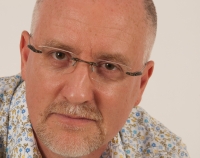How do I help somebody who is living with an addiction? Part 2
As mentioned in our last article, thinking again of how one views addictions, can indeed help the person you love and want to help. Thinking of addiction as a compulsive behaviour rather than a disease or a character flaw, can reap benefits when trying to help somebody with an addiction. An addict is not blind, a significant amount of the time they feel ashamed and guilty of what they’ve put their loved ones through. Someone with an addiction will convincingly tell you they are trying to stop or will never drink or do their addictive behaviour again, but will often do their behaviour nevertheless. On the surface, this looks like an outright lie, but at the heart of it, they are trying to stop. Often, the drive to relieve psychological pain it too much great; thinking of addiction as just a bad habit is a wrong assumption.
Another assumption often made by people trying to help an addict or someone with a compulsive behaviour, is that if they try hard enough, they can fix the person with the addiction. Often this will cause the addict to lie about their addiction all the more, this lying is a source of shame, causing more psychological pain and pushing them more and more into that addictive behaviour.
Something to bear in mind, for anybody helping somebody with an addiction, is that guilt and shame are powerful drivers for addictive behaviour. Furthermore, if the addict is lying, that does not mean that they no longer love you or respect you. Fundamentally, lying is a part of addiction. Often, addictions are driven by a powerful and necessary drive to fight against a sense of helplessness.
A way of understanding this is to imagine a person trapped in the cave, and battling out of the cave with a broken wrist. This is not self-destructive, it is just a sense of overwhelming powerlessness and the need to battle, that helplessness.

Find a therapist dealing with Addiction
All therapists are verified professionals



